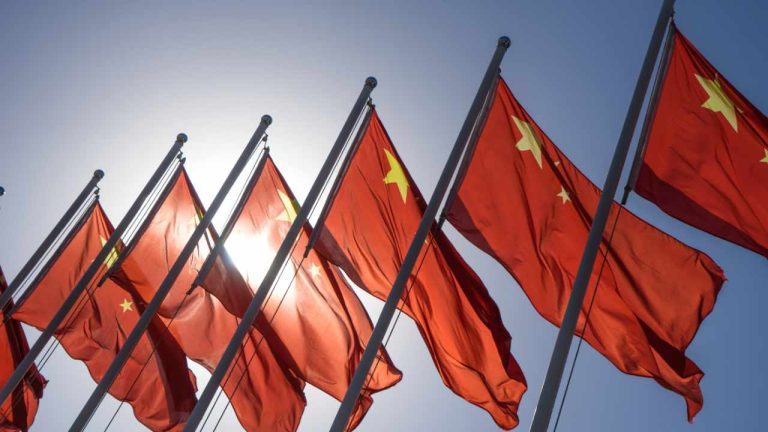 The Chinese government is reportedly launching an “ultra-large-scale blockchain infrastructure platform for the Belt and Road Initiative.” The platform will support the implementation of cross-border cooperation projects along the Belt and Road Initiative and provide the base for developing applications that showcase collaboration across borders. ‘Ultra-Large Scale Blockchain Infrastructure Platform’ The Chinese government has reportedly […]
The Chinese government is reportedly launching an “ultra-large-scale blockchain infrastructure platform for the Belt and Road Initiative.” The platform will support the implementation of cross-border cooperation projects along the Belt and Road Initiative and provide the base for developing applications that showcase collaboration across borders. ‘Ultra-Large Scale Blockchain Infrastructure Platform’ The Chinese government has reportedly […]
While China has cracked down on cryptocurrencies in the mainland, it’s apparently taking a softer approach to Hong Kong’s crypto hub aspirations.
Hong Kong’s ambition of becoming a cryptocurrency hub is reportedly seeing subtle support from the Chinese government, in what could be seen as a contrast to the mainland’s hard-line anti-crypto stance.
In October last year, the government of Hong Kong floated the idea of introducing its own bill to regulate crypto and allow retail investors to “directly invest into virtual assets” that could possibly be in contrast to China’s widespread crypto ban.
According to people familiar with the matter, Beijing officials have not been brazenly opposed to the idea. According to a Feb. 20 Bloomberg report, it is understood that representatives from the China Liaison Office have been frequenting Hong Kong crypto gatherings seeking to understand what’s going on.
So far, their encounters with Beijing officials on the matter have been friendly, according to those familiar, which is being perceived by local crypto business operators that Beijing — albeit very subtly — may be open to using Hong Kong as a testbed for crypto.
New Bitcoin narrative brewing: Hong Kong is getting into crypto.
— Luke Martin (@VentureCoinist) February 16, 2023
What makes it even more interesting is the People's Bank of China is one of the only central banks in the world cutting rates & easing.
Asia is bidding [sources] pic.twitter.com/n5cwE7jI2l
Hong Kong is a Special Administrative Region of China, allowing it to have its own laws and governance. The former British colony was transferred back to China in 1997 following a guarantee from Beijing there would be no Chinese interference with the region’s economic and political systems for 50 years, known as the “one country, two systems” principle.
National People’s Congress member and digital asset lawyer Nick Chan was quoted as saying that as long as there are no violations of “the bottom line, to not threaten financial stability in China,” then the city is free to undertake its own pursuits.
Related: Crypto’s next bull run will come from the East: Gemini co-founder
On Feb. 20, Hong Kong’s Securities and Futures Commission outlined a new crypto license regime that proposed that all centralized exchanges that operate in the region must be licensed with the regulator.
It also proposed allowing retail traders access to licensed cryptocurrency trading platforms, saying public feedback highlighted that denying access to crypto markets may push Hong Kongers to trade on unregulated overseas platforms.
The new regulatory push has spurred many crypto businesses to seek expansion into the city. Most recently the exchange Huobi Global said it would seek a local license and plans to open a new Hong Kong-only exchange with a focus on institutional and high-net-worth individuals.
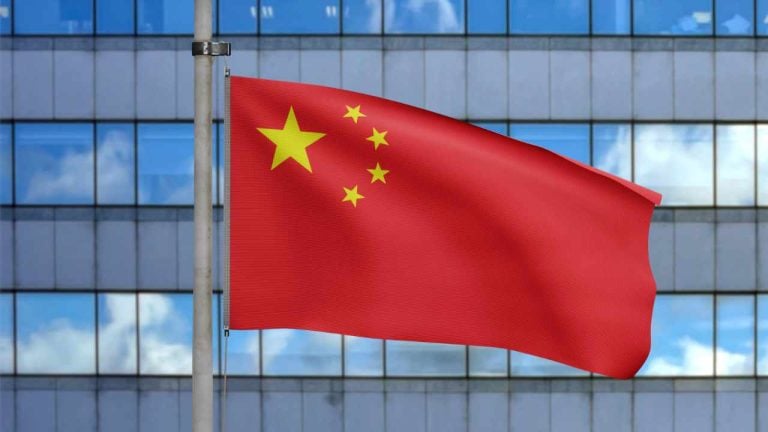 The Chinese government is setting up a national blockchain innovation center in Beijing to focus on industrial applications and major use cases of blockchain technology, particularly those related to the Chinese economy. China Establishing New Blockchain Center China’s Ministry of Science and Technology has approved the establishment of a blockchain research center called the National […]
The Chinese government is setting up a national blockchain innovation center in Beijing to focus on industrial applications and major use cases of blockchain technology, particularly those related to the Chinese economy. China Establishing New Blockchain Center China’s Ministry of Science and Technology has approved the establishment of a blockchain research center called the National […]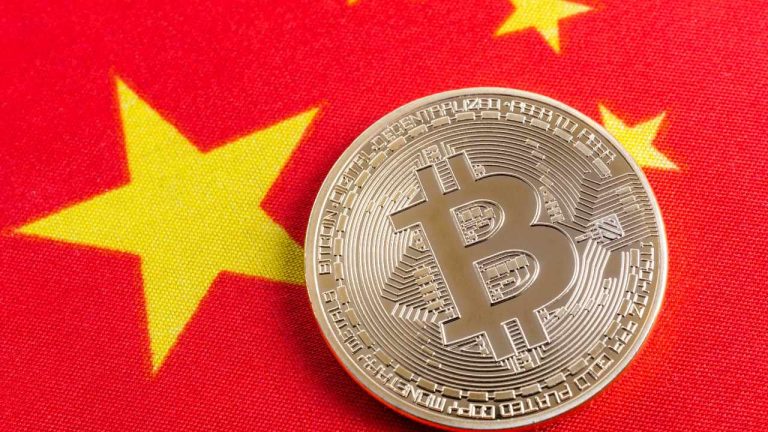 An economics professor and former adviser to the People’s Bank of China has urged the Chinese government to reconsider its ban on cryptocurrencies. He warned that banning crypto activities could result in missed opportunities that are “very valuable” to regulated financial systems. Chinese Economist Warns of Missed Opportunities Due to Crypto Ban A former adviser […]
An economics professor and former adviser to the People’s Bank of China has urged the Chinese government to reconsider its ban on cryptocurrencies. He warned that banning crypto activities could result in missed opportunities that are “very valuable” to regulated financial systems. Chinese Economist Warns of Missed Opportunities Due to Crypto Ban A former adviser […] The Chinese government has presented a plan of action regarding the inclusion of virtual reality (VR) and augmented reality (AR) in the lives of the Chinese people. The plan contemplates research of several technologies, including the development of an open metaverse platform for its citizens and research on odor simulation technology. Chinese Government Includes Odor […]
The Chinese government has presented a plan of action regarding the inclusion of virtual reality (VR) and augmented reality (AR) in the lives of the Chinese people. The plan contemplates research of several technologies, including the development of an open metaverse platform for its citizens and research on odor simulation technology. Chinese Government Includes Odor […]
China has used its Economic Daily media outlet to signal that further regulatory action may be taken toward stablecoins in the wake of the collapse of Terra’s algorithmic stablecoin.
The China state-owned media outlet, the Economic Daily, has signaled that the Chinese government may introduce even tighter regulations on cryptocurrencies and stablecoins due to the collapse of the Terra ecosystem.
In an article published May 31, the outlet detailed the collapse of TerraUSD (UST) and Luna (LUNA), explaining the workings of the algorithmic stablecoin. It used the so-called black swan event to praise the Chinese government’s decision to ban cryptocurrency.
“My country has been cracking down on virtual currency trading speculation and a large number of trading platforms,” reporter Li Hualin wrote before adding, “this has effectively blocked the transmission of this risk in China and avoided investment risks to the greatest extent possible.”
Hualin explained that “many other countries” are looking to regulate stablecoins following the Terra collapse and quoted Zhou Maohua, a researcher at the China Everbright Bank, to make a case for further restrictions within China:
“In the future, our country will also speed up the completion of regulatory shortcomings, and introduce targeted regulatory measures for the risk of stablecoins to further reduce the space for virtual currency speculation, illegal financial activities and related illegal and criminal activities, and better protect the safety of the people.”
After banning crypto exchanges back in 2017, the Chinese government has been toughening its stance on crypto again since mid-2021. Multiple agencies warned of the risk of investing in crypto, and a major crackdown on mining within the country took place.
Colin Wu, a China-focused cryptocurrency reporter, cleared up the misconception around the ban, telling Cointelegraph that the laws don’t allow institutions to provide crypto services “but they don’t prohibit ordinary people from using cryptocurrencies — there is no clear law to prohibit it,” adding:
“Institutions and enterprises are completely banned from trading or owning cryptocurrency in China, but individuals are free to own, buy and sell, and some local courts even consider them to be legally protected as virtual property.”
Earlier in May, a Shanghai court found that Bitcoin (BTC) is subject to property rights, laws and regulations as its value, scarcity and disposability meet the definition of virtual property according to the court.
As for how traders obtain crypto in the first place, Cointelegraph previously highlighted the rising use of VPNs among Chinese traders. Following the last round of restrictions, traders began increasingly using offshore exchanges or peer-to-peer (P2P) platforms for all of their activities.
Related: City of Shenzhen airdrops 30M in free digital yuan to stimulate consumer spending
Wu says there is a “great possibility” that the Chinese government would impose even tighter restrictions or even complete bans on stablecoins to prohibit ownership, transfer, purchase and sale of the assets, “especially for Tether,” he added.
But, China may not stop at its own borders, as the Chinese Communist Party-owned outlet said that regulators in other countries should “strive to formulate global general rules” to tighten scrutiny on cross-border payments.
The Beijing regime outlet concluded that the move will “prevent virtual currency from becoming a tool for money laundering, fraud, and illegal fundraising.”
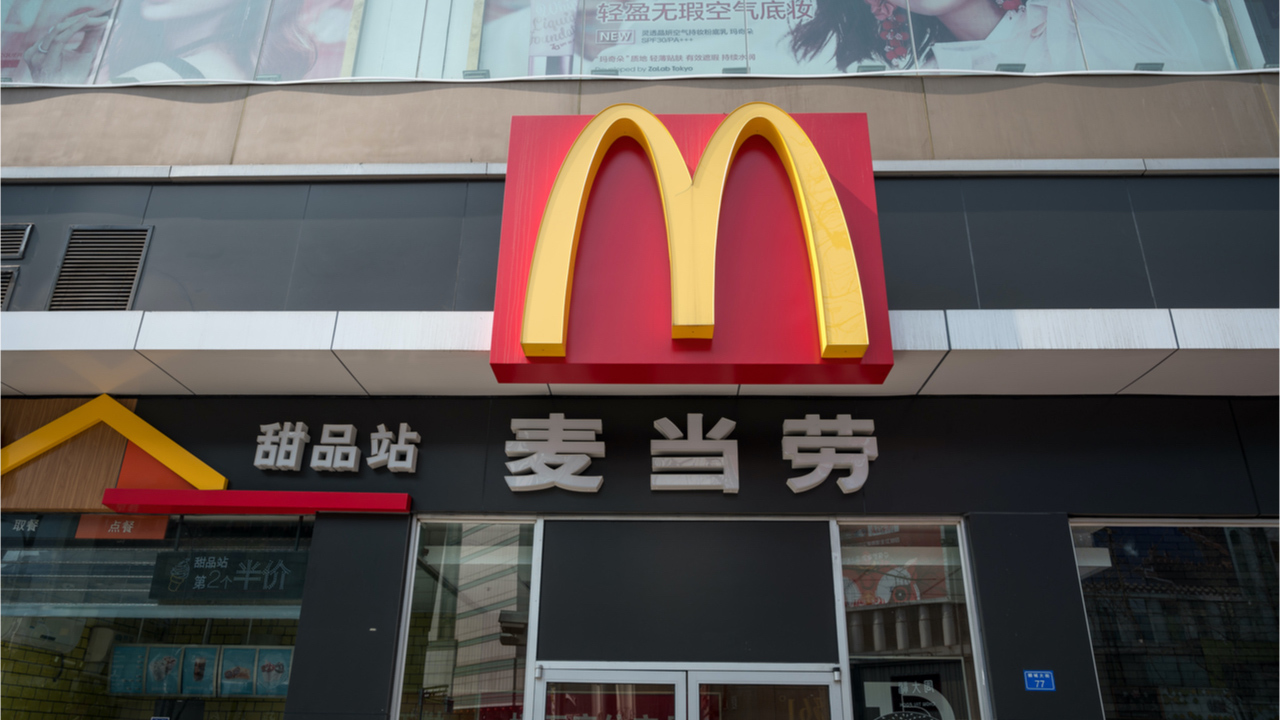 According to a recent report, Beijing is pressing the fast-food retail chain McDonald’s to support the digital yuan before the Winter Olympics in China scheduled for February 2022. The report notes that China is also pushing companies like Visa and Nike to join in on the central bank digital currency (CBDC) rollout. Chinese Government Pushes […]
According to a recent report, Beijing is pressing the fast-food retail chain McDonald’s to support the digital yuan before the Winter Olympics in China scheduled for February 2022. The report notes that China is also pushing companies like Visa and Nike to join in on the central bank digital currency (CBDC) rollout. Chinese Government Pushes […] China has proposed adding cryptocurrency mining to the country’s latest “Negative List for Market Access.” This will make cryptocurrency mining an industry that is off-limits to investors, another move by the Chinese government to clamp down on crypto-related activities. China’s Negative List of Industries to Include Cryptocurrency Mining Cryptocurrency mining has been added to the […]
China has proposed adding cryptocurrency mining to the country’s latest “Negative List for Market Access.” This will make cryptocurrency mining an industry that is off-limits to investors, another move by the Chinese government to clamp down on crypto-related activities. China’s Negative List of Industries to Include Cryptocurrency Mining Cryptocurrency mining has been added to the […]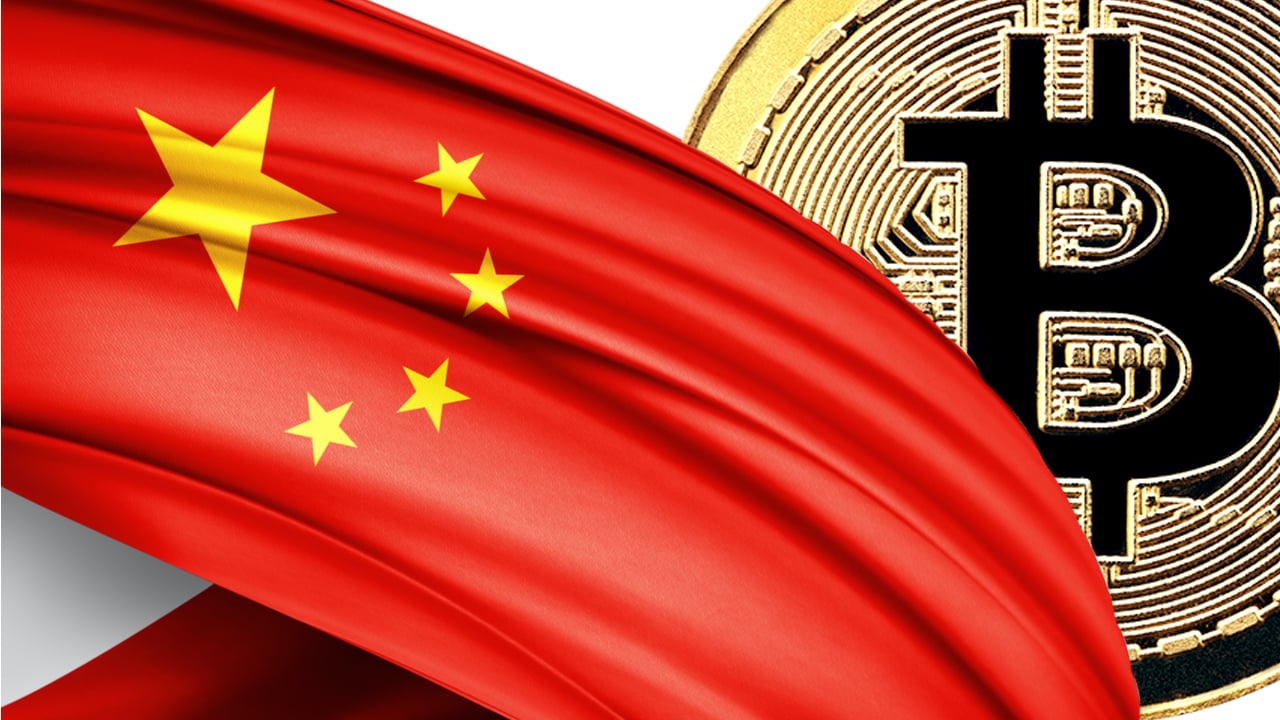 The People’s Bank of China (PBOC), the country’s central bank, published a Q&A to its website which said that Chinese citizens participating in virtual currency exchange offshore is “considered illegal financial activity.” The PBOC also reiterated comments it had made in the past stressing that “financial institutions and non-bank payment institutions” cannot process crypto payments. […]
The People’s Bank of China (PBOC), the country’s central bank, published a Q&A to its website which said that Chinese citizens participating in virtual currency exchange offshore is “considered illegal financial activity.” The PBOC also reiterated comments it had made in the past stressing that “financial institutions and non-bank payment institutions” cannot process crypto payments. […] The head of global equity strategy at Jefferies, an investment bank and asset management firm, says that cryptocurrency regulation in the U.S. would “ultimately be very positive” for bitcoin or other crypto assets. It will also be more accommodating than China’s authoritarian approach to crypto regulation. US Regulation Would ‘Ultimately Be Very Positive’ for Mass […]
The head of global equity strategy at Jefferies, an investment bank and asset management firm, says that cryptocurrency regulation in the U.S. would “ultimately be very positive” for bitcoin or other crypto assets. It will also be more accommodating than China’s authoritarian approach to crypto regulation. US Regulation Would ‘Ultimately Be Very Positive’ for Mass […]